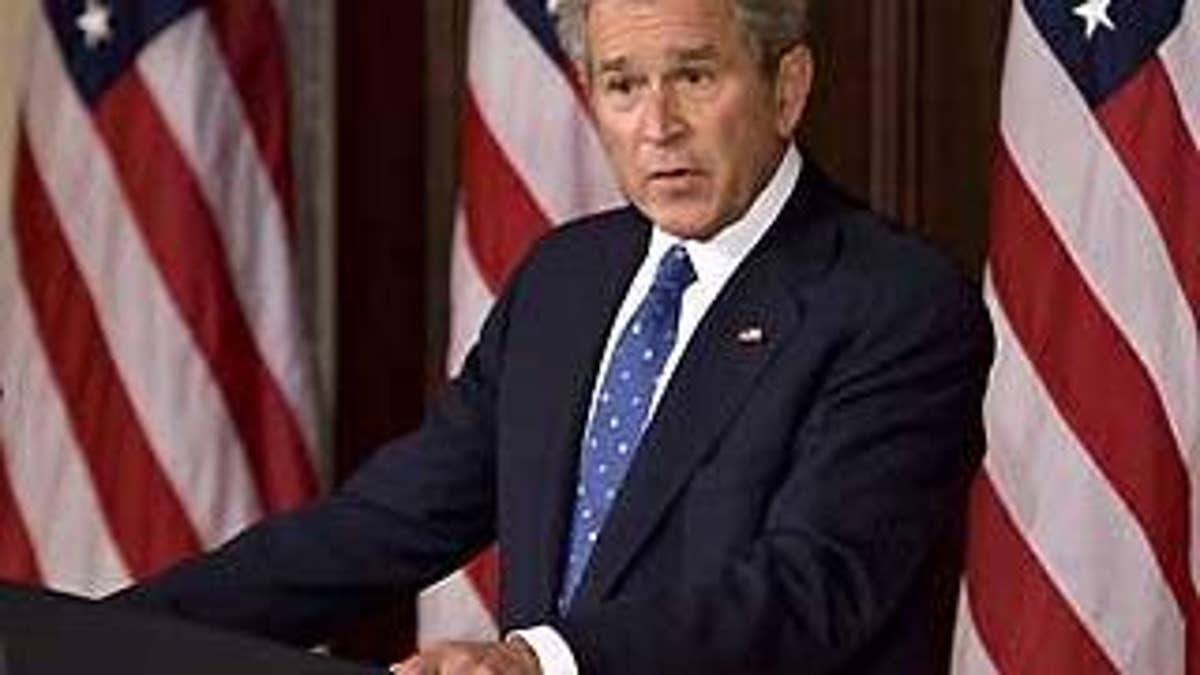
President Bush felt the warm embrace of environmentalists Tuesday as he announced the largest marine conservation effort in history -- the designation of three remote Pacific island chains as national monuments.
Some went so far as to compare Bush to Teddy Roosevelt, who created the national park system a century ago.
"This administration has done more for the environment and addressing climate change than any other in history," Kristen Hellmer, a spokeswoman for the Executive Office of the President Council on Environmental Quality, said in a written statement.
"Since taking office, President Bush has committed more than $42 billion to climate change research, technology, incentives and programs. His policy is science-based, and is focused on a portfolio of actions that foster economic growth, achieve emissions reductions through technology investments, and include developed and developing economies."
But others said Bush's conservation effort, while laudable, was not enough to erase the lowlights of his environmental record. Groups like the Natural Resources Defense Council say Bush over the last eight years dismantled environmental safeguards, ignored climate concerns, undermined scientific results and pandered to industries that jeopardized Americans' health and natural heritage.
"I think he's consistently put the interests of his cronies in the oil business far ahead of a real commitment to clean and renewable energy resources," Michael Oko, a spokesman for the group, told FOXNews.com
Laura Capps, senior vice president for Ocean Conservancy, said of Bush's most recent effort, "The Bush administration deserves our applause and praise for taking such bold action.
"But you have to look at the entire record," she added. "Looking at the last eight years, you really have to balance comparisons with little or no action on global warming and lifting a 27-year ban on new offshore drilling."
Capps described Bush's environmental record as mixed.
"The ocean community is happy and thrilled," she said about Bush's conservation effort. "But we're still fighting on many other fronts."
Bush defended his legacy Tuesday during his announcement of the marine conservation effort, citing all of his accomplishments since 2001, including a 12 percent drop in air pollution, protecting more than 27 million acres of federal forest land from wildfires and saving or improving more than 3.6 million acres of wetlands.
"At the same time, we've taken aggressive steps to make America's energy supply cleaner and more secure and confronted the challenge of global climate change," he said, adding that he signed two major energy bills, raised average fuel efficiency standards for automobiles for the first time in more than a decade and mandated major increases in the use of renewable fuels and the efficiency of lighting and appliances.
"With all these steps, we have charted the way toward a more promising era in environmental stewardship," he said.
But Bush's environmental record has been under attack for years.
In 2004, James Hansen, NASA's top climate expert, blasted the Bush administration, accusing officials of altering news releases, revising government reports and rejecting scientific results to keep the public in the dark about the dangers of global warming.
Bush drew fire for refusing to sign the 1997 Kyoto Protocol on climate change, saying the landmark agreement, which aims to reduce greenhouse gas emissions believed to be behind rising global temperatures, would have destroyed the U.S. economy. He also noted that the treaty didn't require other "big polluters" such as India and China to cut emissions.
But Bush wasn't alone in rejecting Kyoto, which went into effect in 2005. In 1997, then-President Bill Clinton did not send the U.S. Senate the treaty to ratify, having been informed two years earlier that it would not have passed. Clinton later criticized Bush for rejecting Kyoto.
Earlier this year, Bush announced a national goal of stopping the projected growth of U.S. greenhouse gas emissions by 2025.




